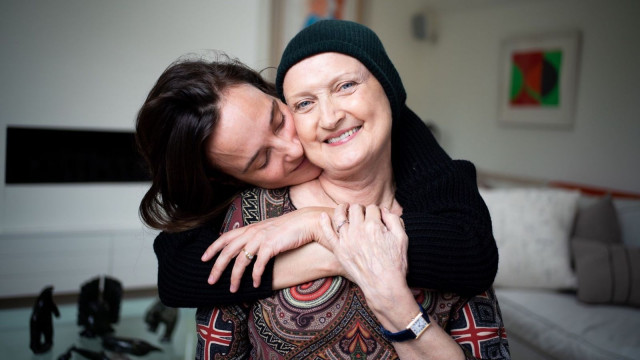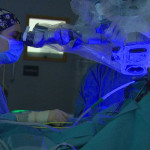 Ukraine reports 5,276 new COVID-19 cases
Ukraine reports 5,276 new COVID-19 cases
 Zelensky: Every third Ukrainian considers road construction one of greatest achievements of 2021
Zelensky: Every third Ukrainian considers road construction one of greatest achievements of 2021
 Ukraine ready to implement Minsk agreements, but Russia's desire needed - Yermak
Ukraine ready to implement Minsk agreements, but Russia's desire needed - Yermak
 Michel: EU unanimously agree to roll over economic sanctions against Russia
Michel: EU unanimously agree to roll over economic sanctions against Russia
 Actions by Ukraine's partners will help prevent worst-case scenario - Zelensky
Actions by Ukraine's partners will help prevent worst-case scenario - Zelensky
 COVID-19 in Ukraine: Health officials confirm 8,899 daily cases as of Dec 17
COVID-19 in Ukraine: Health officials confirm 8,899 daily cases as of Dec 17
 Macron tells Zelensky he declared support for Ukraine in call with Putin
Macron tells Zelensky he declared support for Ukraine in call with Putin
 Zelensky, Scholz discuss gas transit through Ukraine after 2024
Zelensky, Scholz discuss gas transit through Ukraine after 2024
 Ukraine ready for any format of talks with Russia - Zelensky
Ukraine ready for any format of talks with Russia - Zelensky
 Ukraine’s only journalist in Russia facing extremism charges - lawyer
Ukraine’s only journalist in Russia facing extremism charges - lawyer
 PM Shmyhal: First two applications for investment projects worth $96 million filed
PM Shmyhal: First two applications for investment projects worth $96 million filed
 Zelensky, PM of Italy discuss security situation around Ukraine
Zelensky, PM of Italy discuss security situation around Ukraine
 President signs off State Budget 2022
President signs off State Budget 2022
 London considering all options for responding to Russia's aggression against Ukraine
London considering all options for responding to Russia's aggression against Ukraine
 Putin, Biden to hold another round of talks
Putin, Biden to hold another round of talks
 Some 260,000 Ukrainians “victims of human trafficking” over 30 years - prosecutor general
Some 260,000 Ukrainians “victims of human trafficking” over 30 years - prosecutor general
 Ukraine plans to create center to protect energy infrastructure from cyber attacks
Ukraine plans to create center to protect energy infrastructure from cyber attacks
 No clear idea so far when Normandy Four top diplomats set to meet - German Ambassador
No clear idea so far when Normandy Four top diplomats set to meet - German Ambassador
 Ukraine receives EUR 600M in macro-financial assistance from EU
Ukraine receives EUR 600M in macro-financial assistance from EU
 Zelensky holds phone conversation with PM of Israel
Zelensky holds phone conversation with PM of Israel
 Ukraine sets new daily COVID vaccination record
Ukraine sets new daily COVID vaccination record
 MFA: European Union has not yet removed Ukraine from list of safe countries
MFA: European Union has not yet removed Ukraine from list of safe countries
 Kyiv records 1,023 new COVID-19 cases, 29 deaths
Kyiv records 1,023 new COVID-19 cases, 29 deaths
 G7 ambassadors welcome adoption of law on NABU status
G7 ambassadors welcome adoption of law on NABU status
 Ukraine can increase Covid vaccination rates to 1.5M a week – Liashko
Ukraine can increase Covid vaccination rates to 1.5M a week – Liashko
A "pink drink" that allows surgeons to target brain tumours by making them glow under blue light has been rolled out across the NHS.
Professor Keyoumars Ashkan, the lead for neuro-oncology at Kings College Hospital in London, told Sky News the move could save thousands of lives across the UK every year.
A liquid, known as 5-ALA, uses a fluorescent dye to make cancerous cells show up under a blue light.
This enables surgeons to more precisely target brain tumour tissue during surgery to remove it, and helps to spare healthy brain cells.
Research suggests a whole tumour can be successfully removed in 70% of cases where 5-ALA is used.
The treatment has been available in some NHS hospitals but will now be available in every neurological centre in England.
Professor Ashkan was one of the first doctors in the country to use the 5-ALA treatment over a decade ago.
Since then, he has been training medics from across the world.
"This drug helps us because it can differentiate and delineate a tumour a lot better than it would be under an ordinary white light, so the better we can see, the more clear the margins.
"You're going to be able to remove more of the tumour, and hopefully with less risks, and therefore actually get a better outcome for the patients."
Professor Ashkan says he wishes the drug could have been rolled out earlier.
He added: "This is a great advancement for patients, at the end of the day we are here to help our patients so we have got an extra tool which is now widely available, let's use it."
The drug costs £1,000 per person and the specialist equipment costs in excess of £30,000 each time it is put in place.
German manufacturer Medac, which makes the "pink drink", told Sky News it would "struggle to supply" the drug to the UK market after Brexit.
It added that the price "will inevitably go up" and it will "consider increasing prices" after Britain leaves the European Union.
The rollout of the drug comes a year after the death of Baroness Tessa Jowell from brain cancer.
The Labour MP was diagnosed with a glioblastoma, the most common cancerous brain tumour in adults, in May 2017.
She went on to call for better funding and treatments for the disease, and campaigned heavily for the introduction of 5-ALA.
Jess Mills, the late MP's daughter, now campaigns for better treatment for people diagnosed with brain cancer across the UK,
She told Sky News: "It's a moment to feel proud with what we're starting to achieve by delivering her legacy.
"A year on, I feel lots of things. I miss her more and more everyday if that's possible, but I also have a huge sense of pride of what we're achieving in her name in the way she would want it to be done which is full of optimism, forward thinking and with huge ambition."
Ms Mills, who now looks after a charity in her mum's name, added: "It's a really important step but my god there's so much to do, and that's what mum would say, she would say this is fantastic but think of everything else we've got to do as well.
"And that's how I feel because this is a really important step but there is so much work that needs to be done, not just for brain cancer patients but for all those patients who are told their cancer is untreatable at the point of diagnosis."
Health Secretary Matt Hancock said: "I am proud to announce we have now rolled out this groundbreaking treatment aid across the country, transforming care for 2,000 patients every year - a fitting testament to Tessa's memory.
"A cancer diagnosis is life-changing, but I want every single patient to feel reassured that they have access to the best and fastest care in our wonderful NHS."
In response to Medac's comments that the price of the drug will rise after Brexit, Mr Hancock said: "There's absolutely no reason why being able to buy drugs should be any different, we've already got in place agreements to make sure that drugs can flow in whatever the Brexit scenario and we can buy drugs from all over the world.
"We've always bought drugs from outside the EU as well as inside the EU so I'm absolutely determined that will continue in the future.
"There's many companies that want to sell the very best drugs to the NHS. The NHS drives a hard bargain to get good value for money and I'm sure we'll do it this time too."
Emma Greenwood, Cancer Research UK's director of policy and public affairs, said: "Brain tumours remain a huge challenge, with survival barely improving over the last 30 years, and making 5-ALA available across the NHS is one of Dame Tessa Jowell's many legacies."

























































































































